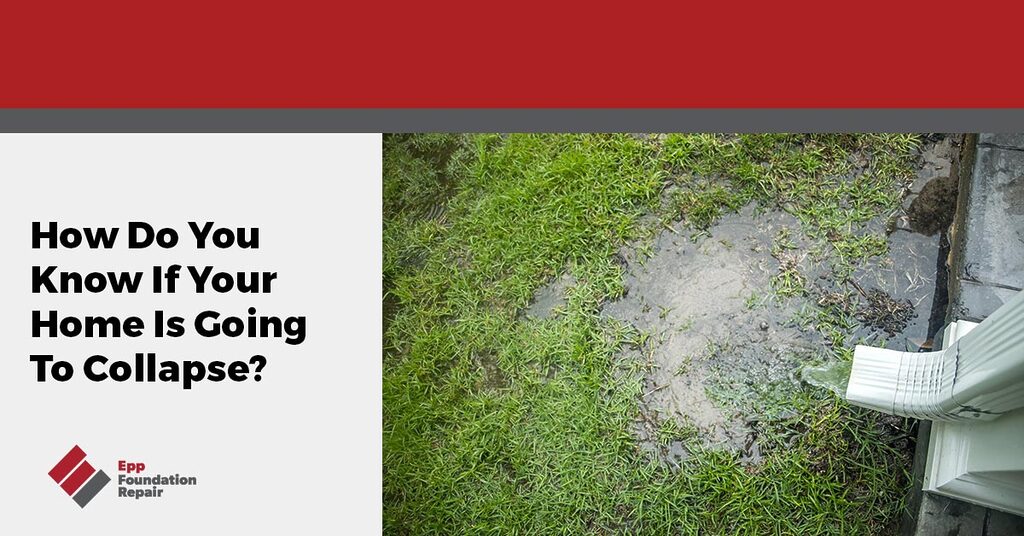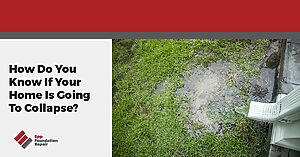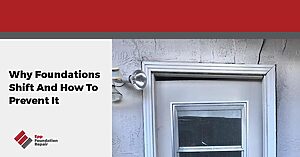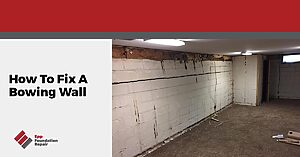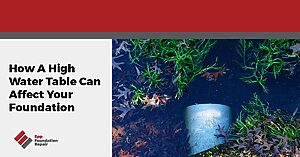If you notice signs that a house will collapse, take immediate action before it’s too late. To do that, you’ll need to become familiar with the tell-tale signs. But, before we get into that, let’s talk about the importance of a strong foundation.
Why Is Foundation Support Essential?
The foundation helps distribute the weight of the walls, the roof, and everything inside, ensuring your home stays stable. If it becomes compromised, the results may be catastrophic.
What Is Differential Settlement?
Differential settlement refers to the uneven settling of a building’s foundation.
Differential settlement can cause serious structural damage to a building, and in extreme cases, it can even cause the building to collapse. As some parts of the foundation settle more than others, the building may become tilted, leading to cracks in the walls, windows, and floors. As the building continues to settle unevenly, the cracks may become larger, and the building may become increasingly unstable.
The risk of collapse increases significantly when the differential settlement is severe, and the weight of the building is not distributed evenly across the foundation. This can result in a loss of structural integrity, making the building more susceptible to damage from natural disasters such as earthquakes or high winds.
When discussing differential settlement, it’s also important to know that there is something called “uniform settlement.” Uniform settlement happens when a property settles evenly across its entire foundation. This is pretty common after construction and usually isn’t anything to worry about.
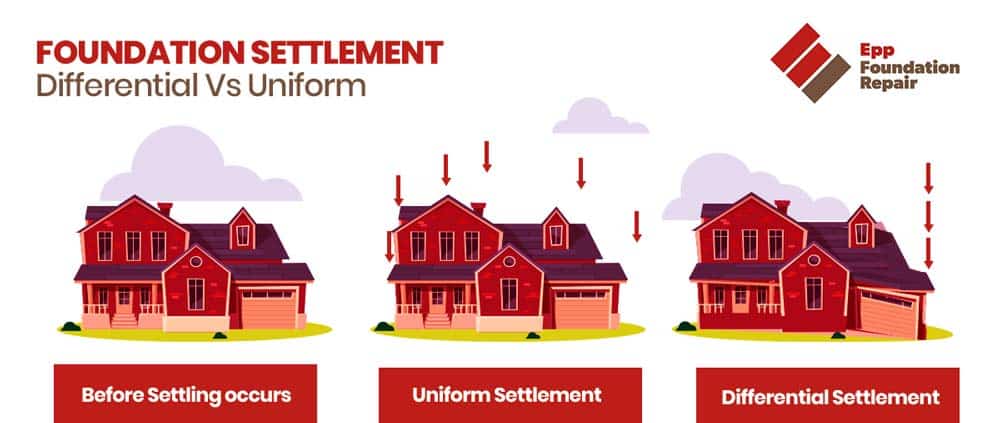
What Causes Differential Settlement?
The differential settlement doesn’t pop up out of the blue. By understanding the following root causes, you can take preventative measures to protect your property and maintain its structural integrity.
The four key reasons why differential settlement happens include excessive soil moisture, expansive soil, erosion-prone soil, and faulty construction techniques.
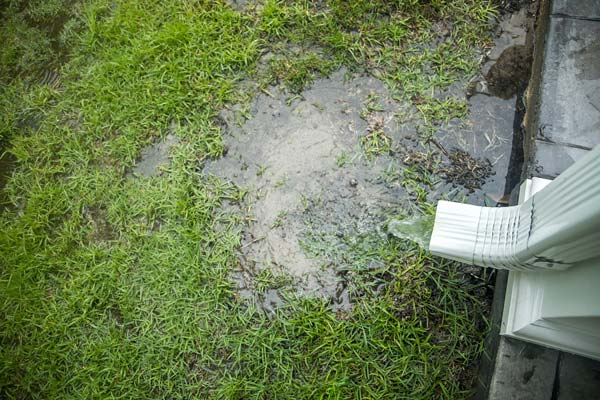
Moisture
Excess moisture in the soil around the foundation is one of the main reasons homeowners deal with structural damage and the possibility of the house collapsing. The lack of proper drainage systems, heavy rains, and improper grading can all play a role.
Expansive Soil
Expansive soil is a special clay-rich soil that changes in volume when it absorbs or loses moisture.
When expansive soil absorbs water, it swells; when it dries out, it contracts. This process of constant expansion and contraction causes movement under the foundation. Over time, this can lead to differential settlement and compromise structural integrity.
Erosion-prone Soil
Soil prone to erosion is susceptible to being worn away by natural forces like strong winds or heavy rainfall. This can destabilize the foundation and cause structural damage.
Improper Construction Techniques
Last but not least, the house’s foundation can be compromised if the property is built using subpar construction techniques. One example of this is inadequate soil compaction before construction begins.
Signs A House Might Be In Danger Of Collapse
Sloping Or Uneven Floors
If the floors are sloping, uneven, or even bouncy, you might have a problem with foundation settlement. Reach out to an expert foundation repair specialist who can check the problem and recommend the best solutions.
Damp Basement Or Crawl Space
Musty smells, mold, and mildew growth, water spots, and high humidity in your house could indicate a wet crawl space or basement. Dampness typically occurs due to leaky pipes, poor drainage, or a high water table. Since excess moisture around a foundation can compromise structural integrity, it’s a good idea to have your foundation inspected.
Sticking Doors And Windows
Are your windows and doors sticking or not aligning correctly when closing and opening? This is a common sign of differential settlement.
Cracks
While hairline cracks are usually nothing to worry about, larger cracks often point to structural issues.
Leaning Chimney Or Porch
Another sign that a house might collapse is if you see the chimney or porch leaning away from the house or separating from the main structure.
Bowed Foundation Walls
Are your foundation walls bulging or bowing? This is a sign the structural integrity of your home’s foundation is already compromised.
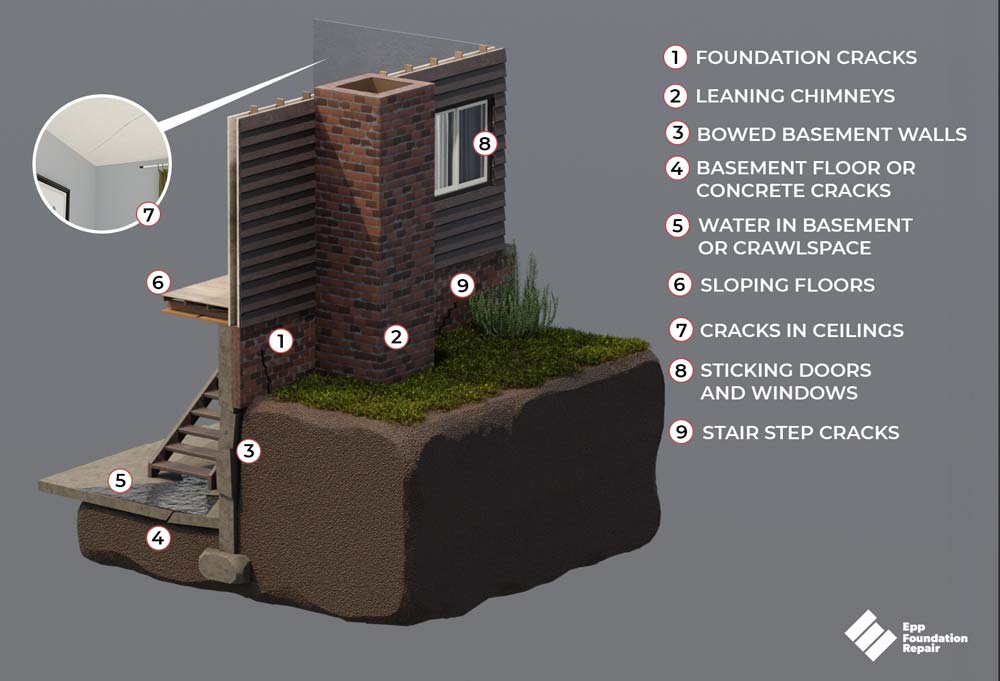
Foundation Repair Options
Underpinning Using Helical Or Push Piers
Foundation underpinning is an effective technique for reinforcing and stabilizing an existing foundation. This technique involves deepening the foundation or redistributing its load across a wider area. Thanks to underpinning, the collapse of a house can be prevented, as the foundation receives the necessary support to withstand the weight of the structure.
Helical or push piers are specialized foundation supports that experts use in underpinning. Professionals drive these supports deep into the ground until they reach a stable soil layer. This transfers the structure’s weight to stable soil or bedrock.
The benefit of anchoring the house to a solid base with the help of helical or push piers is that future structural issues and a possible full (or partial) collapse are prevented.
Contact Epp Foundation Repair Today
Think there might be a problem with your home’s foundation? Contact Epp Foundation Repair to schedule an inspection and receive a repair estimate. We serve cities such as Omaha, Lincoln, Norfolk, Grand Island, and York, offering expert solutions for bowing walls, foundation repair, crawl space encapsulation, basement waterproofing and drainage, concrete leveling, and street creep repair.

